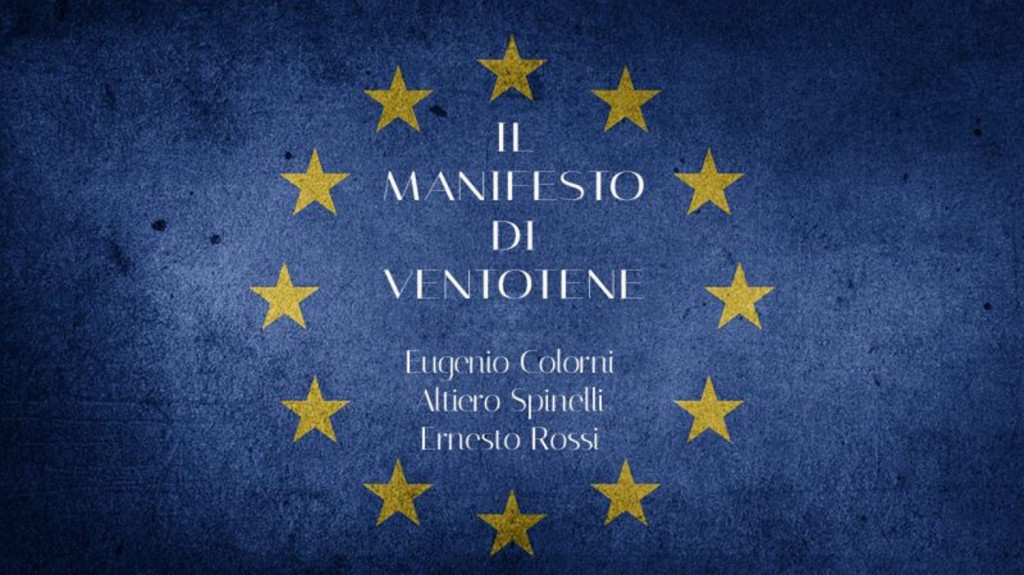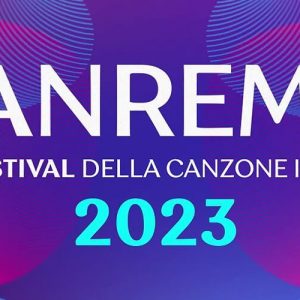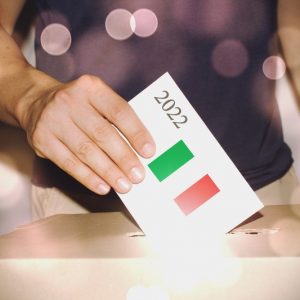Nearly 4.4 million Italian viewers, with a peak audience share of 28.1%, watched Oscar-winning comic, actor, and director Roberto Benigni’s monologue on Wednesday night. This followed Meloni’s comments on the Ventotene Manifesto, saying it did not represent the Europe she envisions.
Benigni’s speech, dedicated to Europe, was broadcast live on Rai1’s show Il Sogno (The Dream).
During the programme, Benigni praised the “European dream” created by the “heroes of Ventotene” – Altiero Spinelli, Ernesto Rossi, and Eugenio Colorni. These men authored the 1941 Ventotene Manifesto, which circulated within the Italian Resistance and became the foundation of the European Federalist Movement.
“We accomplished quite a few things as Europeans. It’s right to remember who we are. We must be proud to be European. Europe is the smallest continent in the world, yet it lit the fuse of all revolutions, transformed the planet, and forged the greatest thoughts of humanity. It invented logic, reason, doubt,” said Benigni. He highlighted that Europe also created “freedom, democracy, theatre, sport, modern chemistry, and social conscience,” forming a “common heritage, an immense treasure in all fields.”
Reflecting on the origins of the European Union, Benigni said: “While all around there were ruins, the dead, bodies, in 1941, on the small island of Ventotene, three men, three heroes—Spinelli, Rossi, and Colorni—had the idea of changing everything, turning a page: the idea of European unity.” The Life Is Beautiful director described them as “our history’s heroes, pioneers.”
Last weekend, a pro-Europe rally in Rome garnered 50,000 participiants.
Political dispute in Senate
A political dispute erupted in the Senate on Thursday following Premier Giorgia Meloni’s remarks that the Ventotene Manifesto did not represent the Europe she envisions. Her statement, made during a Lower House debate ahead of this week’s EU Council meeting, triggered backlash from opposition parties.
Senator Raffaella Paita of the centrist Italia Viva (IV) was the first to respond in Thursday’s Senate session. She condemned the premier’s remarks, saying: “What happened yesterday is grave for democracy and Europe. I consider taking sentences of the manifesto written by exiled heroes out of context to be shameful.” Her words sparked protests from right-wing senators.
“What happened yesterday dishonours the country and does not do justice to Europe and the anti-Fascist Resistance,” she added. Other opposition figures, including Tino Magni from the Green-Left Alliance (AVS) and Sario Parrini of the Democratic Party, also criticised Meloni’s statement, facing interruptions from centre-right senators.
Meloni’s comments in the Lower House had prompted an uproar from opposition MPs, forcing Speaker Lorenzo Fontana to suspend the session briefly.
“I don’t know if this is your Europe, but it’s certainly not mine,” Meloni had declared. She added: “I hope they haven’t read it, because the alternative would be scary.”
On Wednesday evening, Meloni posted a video of her parliamentary address on social media, writing: “You judge.” In her three-minute speech, she quoted excerpts from the 1941 Manifesto, noting its assertion that “the European revolution, in order to respond to our needs, must be Socialist” and its claim that “in revolutionary eras in which institutions don’t need to be administered but created, the democratic practice sensationally fails.”
European Parliament President defends significance of manifesto
Speaking in Brussels on Thursday, European Parliament President Roberta Metsola defended the historical significance of the Ventotene Manifesto. “The 1941 Manifesto of Ventotene is a piece of history that launched, for the first time, the idea of a federal Europe,” she stated during a press conference.
The manifesto, which became the basis of the European Federalist Movement, contained “the first traces of the idea of a federal Europe,” Metsola emphasised.
“Europe grew on the shoulders of many giants, including Italians,” she continued. “Yesterday, I discussed only today’s issues with Meloni. I certainly don’t want to question her European commitment. However, if we look at how Europe has developed, Italy has always been at the centre.”
Meloni’s statement has reignited a debate in Italy over the country’s role in shaping the European Union and its future direction.
What is the Ventotene Manifesto?
The Ventotene Manifesto, written during World War II, is a foundational text advocating a united and federal Europe to prevent the recurrence of nationalist-driven wars. It called for a supranational European government with the power to maintain peace, promote democracy, and prevent totalitarianism. The document later became a cornerstone for European integration and influenced the creation of the European Union.
Ventotene is a small island off the Lazio coast. It housed a Fascist prison during World War II. Spinelli, Rossi, and Colorni were imprisoned there under Mussolini’s dictatorship. It was there they wrote the Ventotene Manifesto, advocating a federation of European states to prevent future wars.





